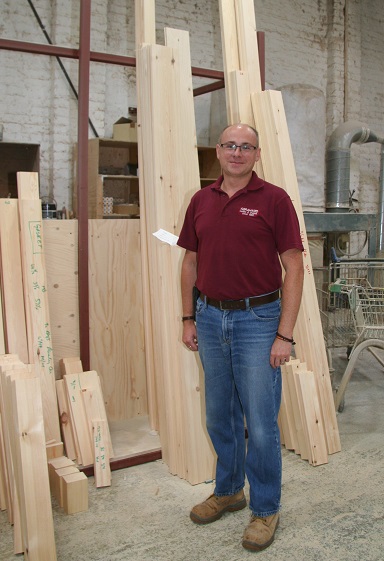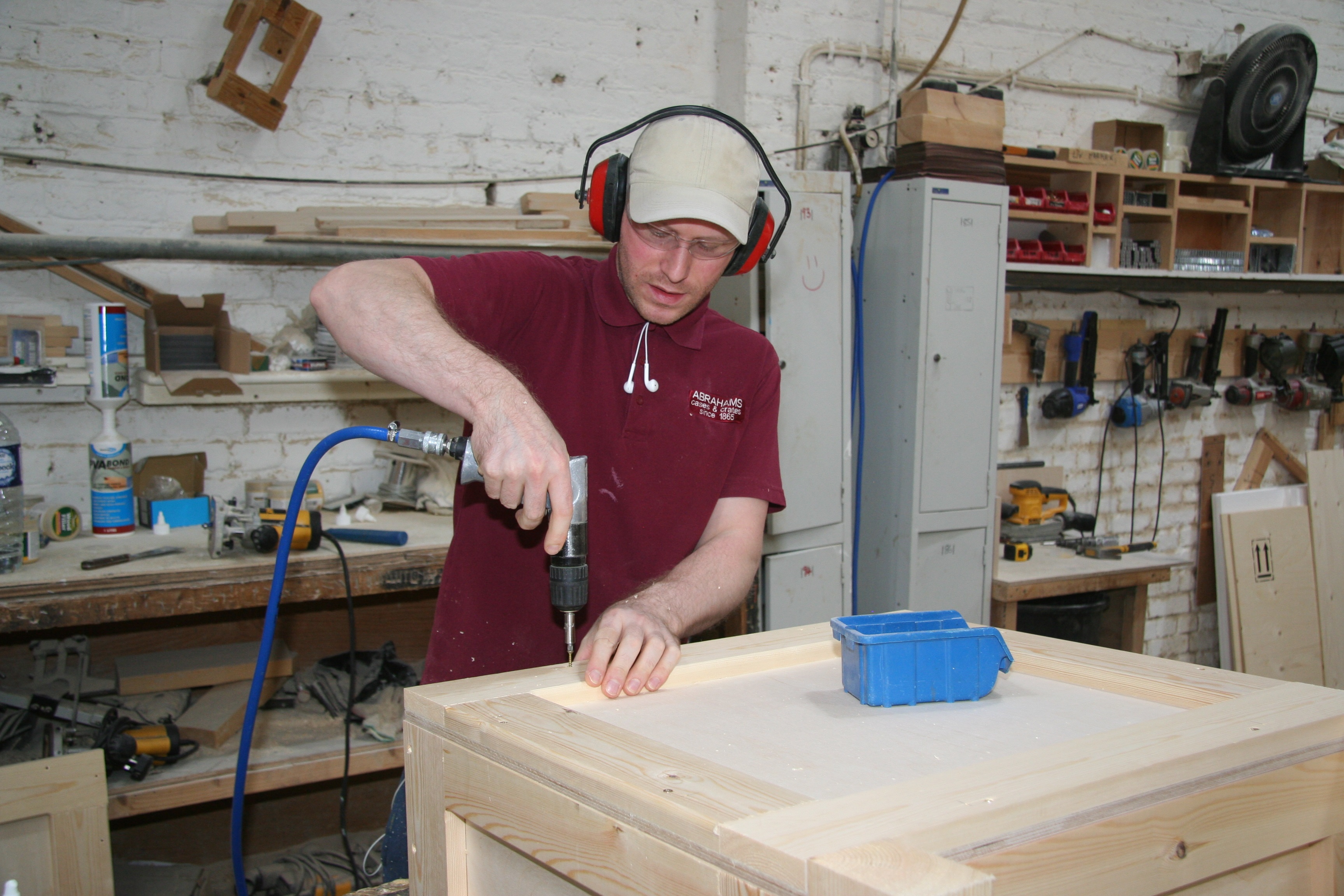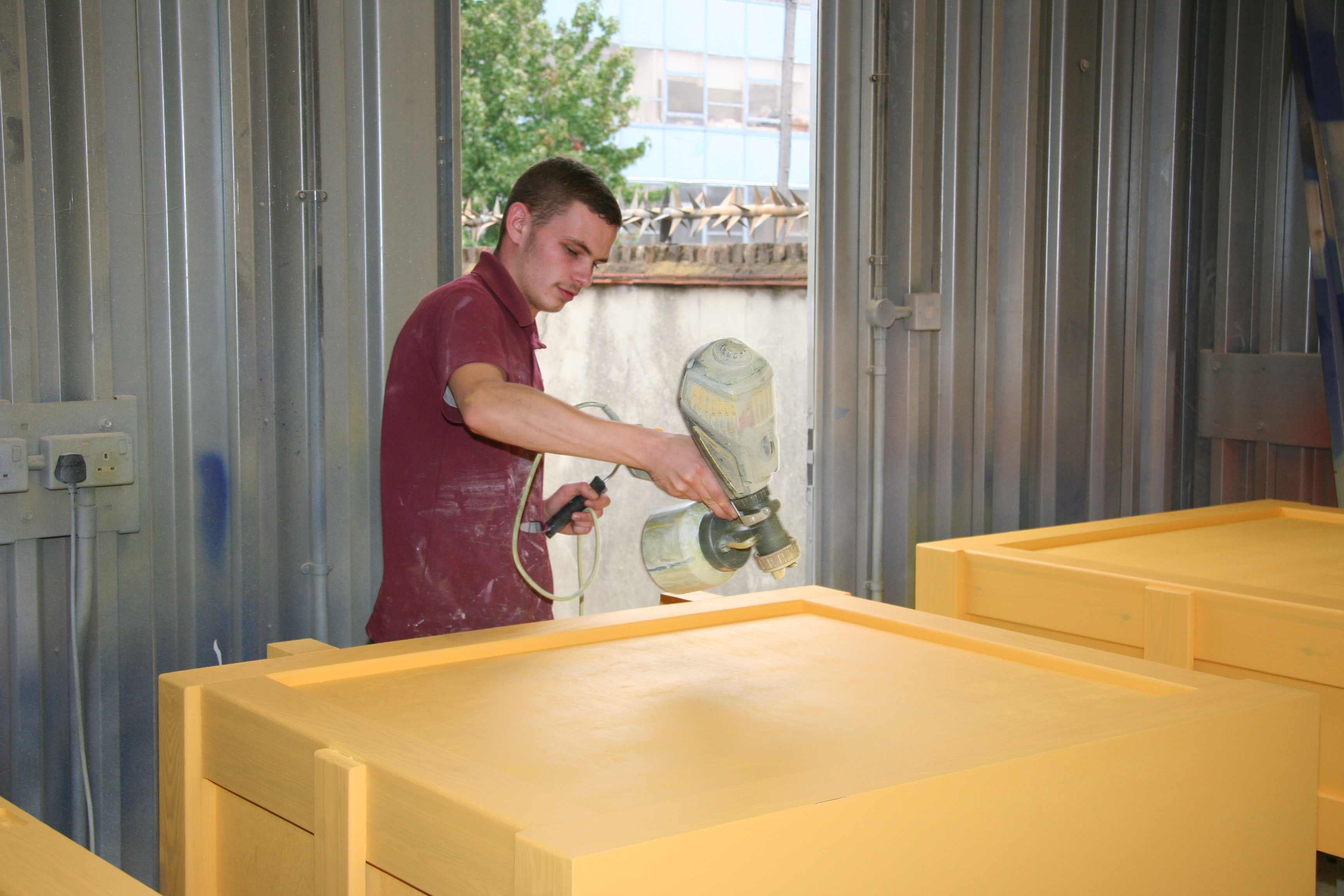Deputy Editor David Jordan travels to London’s East End to meet the capital’s longest established wooden case makers.
 When London case maker E Abrahams & Co Ltd began trading in 1865 Queen Victoria was less than half-way through her reign, Liberal John Russell was Prime Minister and Britain became the first country in the world to introduce a speed limit for motorised vehicles - 2 mph in populated areas and 4 mph elsewhere, preceded by a man with a red flag.
When London case maker E Abrahams & Co Ltd began trading in 1865 Queen Victoria was less than half-way through her reign, Liberal John Russell was Prime Minister and Britain became the first country in the world to introduce a speed limit for motorised vehicles - 2 mph in populated areas and 4 mph elsewhere, preceded by a man with a red flag.
At that time, Abrahams was one of scores of similar companies in London’s East End making wooden cases for the thousands of ships that plied their trade between what was then the world’s busiest port and the rest of the world.
I’d arranged to meet Abrahams’ Financial Director Marc Ben-Nathan to discover how the company had survived for 152 years while its local competitors had long since disappeared and how the business is continuing to prosper today.
As we sat in the office above the factory amid the hum of circular-saws and occasional interruptions from people and smartphone notifications – Marc had warned me the interview may be a little hectic – he explained how the company had adapted to the changing market. Marc began working for Abrahams in the 1990s as a part-time job after leaving university; after 25 years he is still here.
“The traditional market for wooden cases was hit very hard when the shipping industry moved to steel sea containers back in the 1960s and 70s, and a lot of case makers went out of business as a result,” said Marc. “When I started we were making export crates for the oil industry and that accounted for around 75% of our business. Gradually, orders started to die off and we started building warehouse containers for the moving industry, supplying most of the major companies.”
 Abrahams still builds warehouse cases but the growth of the self storage industry, offering individual secure rooms, has reduced the demand considerably. Lift vans are still a popular line for the removals industry, but it is the art market that has become the mainstay of the company in recent years.
Abrahams still builds warehouse cases but the growth of the self storage industry, offering individual secure rooms, has reduced the demand considerably. Lift vans are still a popular line for the removals industry, but it is the art market that has become the mainstay of the company in recent years.
“We began getting enquiries from moving companies in the fine art sector who wanted high-quality bespoke cases and that has now become our core business,” said Marc. They all demand the very highest quality of build and finish for their cases.”
 As we walked around Abrahams’ very busy factory I was amazed at the quality achieved by the company’s craftsmen when building the fine art cases. Each was carefully sanded and any slight imperfections filled before being painted in the colour specified by the customer. To be frank, it all seemed a bit over the top for what was after all only a packing case, but Marc explained that this was the standard the top dealers and shippers expect. “It may seem extravagant, but if you think that the item it will contain could be worth many millions of pounds, it all comes into perspective,” said Marc.
As we walked around Abrahams’ very busy factory I was amazed at the quality achieved by the company’s craftsmen when building the fine art cases. Each was carefully sanded and any slight imperfections filled before being painted in the colour specified by the customer. To be frank, it all seemed a bit over the top for what was after all only a packing case, but Marc explained that this was the standard the top dealers and shippers expect. “It may seem extravagant, but if you think that the item it will contain could be worth many millions of pounds, it all comes into perspective,” said Marc.
 Abrahams also makes bespoke crates for the more everyday items required by moving companies. “We can build cases of more or less any size and shape. We once made a triangular case for a piece of artwork created by a local artist. Another unusual order was for an insulated export case to transport some giant candles bought in London by an Arab Sheik, to his home in the Middle East. Our slogan is, No Job Too Big No Case Too Small and we live by that premise,” said Marc. “Some removal companies still make their own cases, but it takes up a lot of space that could otherwise be used more profitably as storage, so it makes sense to just buy them in.”
Abrahams also makes bespoke crates for the more everyday items required by moving companies. “We can build cases of more or less any size and shape. We once made a triangular case for a piece of artwork created by a local artist. Another unusual order was for an insulated export case to transport some giant candles bought in London by an Arab Sheik, to his home in the Middle East. Our slogan is, No Job Too Big No Case Too Small and we live by that premise,” said Marc. “Some removal companies still make their own cases, but it takes up a lot of space that could otherwise be used more profitably as storage, so it makes sense to just buy them in.”
 Abrahams is very much a ‘hands on’ company and Marc often spends time working in the factory, when needs must, to help get the work out on time – he may be the financial director but his job involves far more than just accounts and Excel spreadsheets. Managing Director Barry Kempton is also not afraid to get his hands dirty, and according to Marc is one of the best case-makers in the business.
Abrahams is very much a ‘hands on’ company and Marc often spends time working in the factory, when needs must, to help get the work out on time – he may be the financial director but his job involves far more than just accounts and Excel spreadsheets. Managing Director Barry Kempton is also not afraid to get his hands dirty, and according to Marc is one of the best case-makers in the business.
Orders are delivered by the company’s own transport within the M25, but being close to the M11 and A12 and well outside the London Low Emission Zone, most removal companies collect their orders from the factory in Bow themselves. “Nearly all removal companies come to London at some time and even if they don’t they know someone who does, so delivery is not a problem,” said Marc. “It makes a beautiful back-load.”
After trading for 152 years Abrahams’ order book is looking very healthy and the company has recently hired five extra staff to cope with the ever-increasing demand for its products.